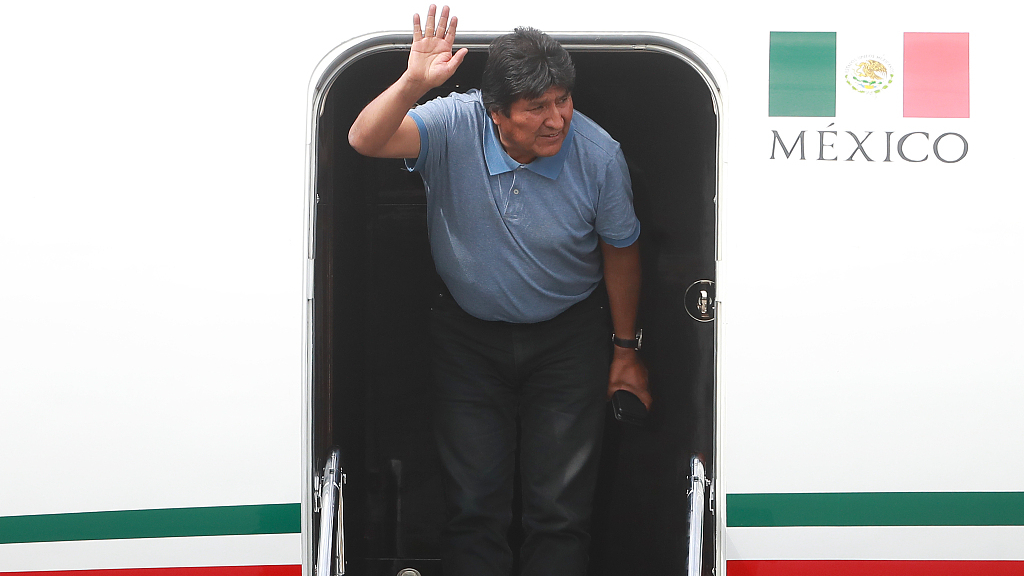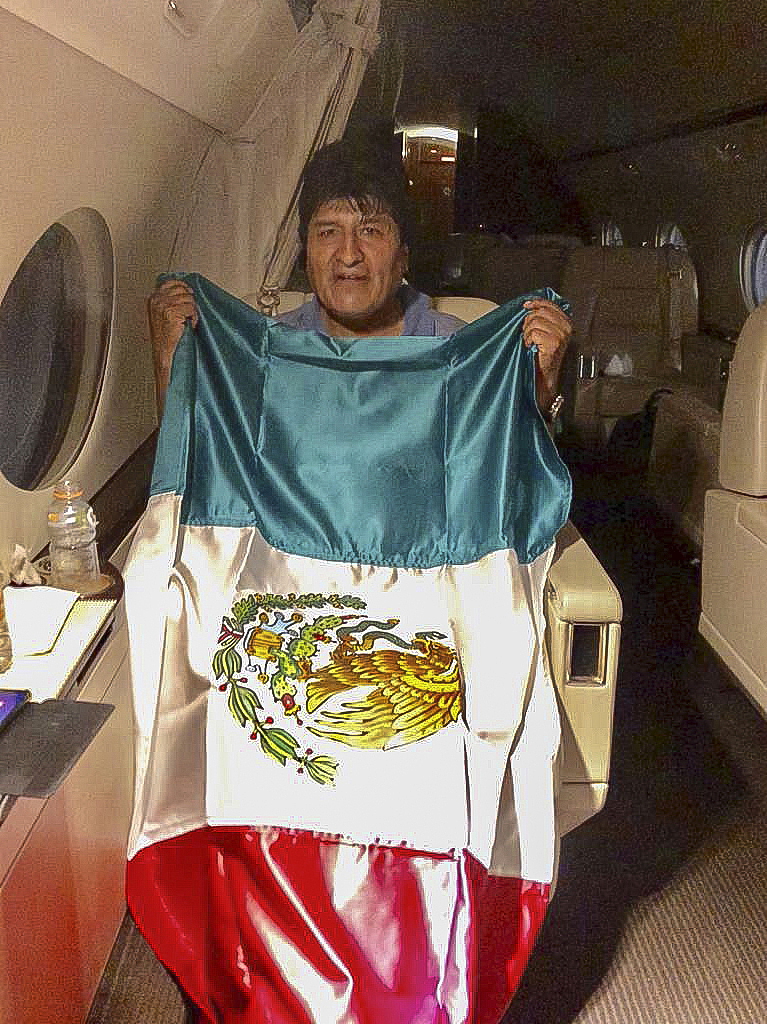
Following the shocking resignation on Sunday, former Bolivian President Evo Morales boarded a Mexican Air Force plane headed for Mexico City. Over the course of two days, Morales went from one of the longest-running leaders in Latin America to a political refugee, joining a long list of famous political emigres accepted by the Mexican government.
When Mexican President Andres Manuel Lopez Obrador, commonly referred to as AMLO, accepted Morales' asylum request on Monday, he positioned himself squarely in the footsteps of Mexico's famous reformers, a move that's consistent with the last century of Mexican politics and goes as far back as the Cardenas government's decision to welcome republican exiles from Spain in the 1930s.
Along with their ideological affinity, the decision to accept Morales also reflects AMLO's consciousness of his place in Mexico's history, said Matthew Butler, an associate professor of Latin-American studies at the University of Texas at Austin.
Morales announced his resignation in a televised address on Sunday after the military called for him to quit amid weeks of protests in Bolivia. Morales had declared victory in a widely disputed presidential election in October. His candidacy was only allowed after the country's constitutional court made a controversial decision to scrap term limits. The disputed win would have given him a fourth consecutive term.
On the grounds of "humanitarian reasons… where his (Morales) life and integrity are at risk," Mexico offered the former president political asylum, which he accepted on Monday.
In its official statement, Mexico's Foreign Ministry cited its tradition of providing asylum protection. Mexico's Foreign Secretary Marcelo Ebrard reiterated this history in a tweet listing other famous figures who found protection in Mexico including Leon Trotsky, Giuseppe Garibaldi, and Mohammad Reza, the deposed Shah of Iran.
A look at the list of figures narrows down the parameters for political asylum: leftist ideology. For the past 100 years, Mexico has traditionally accepted exiles from leftist and democratic governments of Latin America and Europe.
"Its policies are well known regionally, so there's nothing new about what they did with Evo Morales," said Herbert Klein, research fellow and Latin American curator at Stanford University's Hoover Institution.
Once a coca farmer, Morales became Bolivia's first indigenous president in 2005. He came into power during Latin America's "pink tide" which ushered in left-leaning leaders in Ecuador, Brazil, and Argentina.

Handout picture released by the Mexican Foreign Ministry press office showing the Bolivian ex-President Evo Morales leaving Bolivia in an aircraft of the Mexican Air Force bound for Mexico on November 11, 2019.
Handout picture released by the Mexican Foreign Ministry press office showing the Bolivian ex-President Evo Morales leaving Bolivia in an aircraft of the Mexican Air Force bound for Mexico on November 11, 2019.
In this regard Morales is similar to AMLO. They are both leftist, populist and pro-indigenous in countries with large indigenous populations and revolutionary traditions.
AMLO has described his government as Mexico's "Fourth Transformation," a movement to eliminate corruption, alleviate poverty and strive for social justice. The other three transformations refer to Mexico's path towards social democracy: after it gained independence in 1810, the reforms of the 1850s and the Mexican Revolution at the beginning of the 20th century.
Politically, Mexico's decision is a symbolic move that "reestablishes Mexico as an independent foreign player and as a refuge for Latin American political exiles, if not Central American migrants," said Butler.
Ebrard tweeted a photo from the airplane of the exiled leader with the Mexican flag draped across his lap. The country sent a military plane to retrieve the beleaguered leader. En route to Mexico, the plane was forced to refuel in Paraguay after being denied permission in Peru.
"It's like a trip through Latin-American politics and how decisions are made. And the risks that are taken," Ebrard said of the journey in a televised news conference Tuesday morning.
Since landing, Morales has thanked AMLO for "saving his life" and like many of his predecessors exiled in Mexico, resolved to return to his country soon.